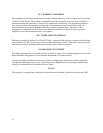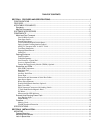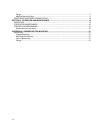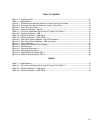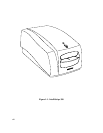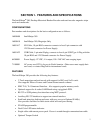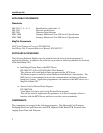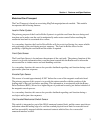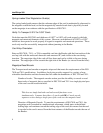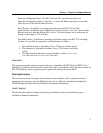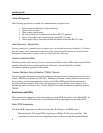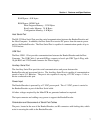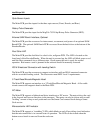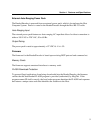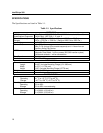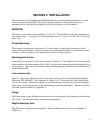
IntelliStripe 380
4
Spring-Loaded Card Registration Guide(s)
The spring-loaded guide ensures that the reference edge of the card is mechanically referenced to
the magnetic read/write head, so that the magnetically encoded track data is physically located
on the magstripe in accordance with the specifications of ISO 7811.
Ability To Transport 0.010 ”to 0.035” Cards
Cards that meet the ISO 7810 card thickness of 0.027” to 0.033 will work properly with both
magnetic and smartcard elements of this system. However, card thickness of 0.010” to 0.035”
should not be expected to work properly in regard to magnetic and smartcard operations. These
cards only need be successfully transported without jamming in the Reader.
Card Entry/Orientation
Enter an ISO 7810-, 7811-, or 7816-compatible card into the Reader with the front surface of the
card up (side with the embossed characters and smartcard IC) and visible to the user during
insertion. The magstripe side of the card will face down and not be visible to the user during
insertion. The magstripe will be towards the right side of the Reader (as viewed from the front).
Magstripe Read/Encode
The Transport reads and encodes a magnetic stripe card that meets the requirements of the ISO
7810 and 7811 specifications. In addition, the device provides support for a variety of user
selectable data densities and data formats that fall within the boundaries of ISO 7810 and 7811.
Number of tracks: The magnetic encode section provides the ability to encode or read
three tracks of magnetic data as specified in ISO 7810 and 7811 in a single physical pass
of the card over the read/write head.
Note
This does not imply that both read and encode functions occur
simultaneously. It means that either a 3-track read OR a 3-track encode
sequence occurs during a single pass of the card over the magnetic head.
Direction of Magnetic Encode: To meet the requirements of ISO 7810 and 7811, the
magstripe card is encoded in a unidirectional movement, which starts at the defined
leading edge and continues toward the trailing edge of the card; this means that the card
is encoded as the card is moved from the front entrance of the Reader towards the rear of
the Reader.



